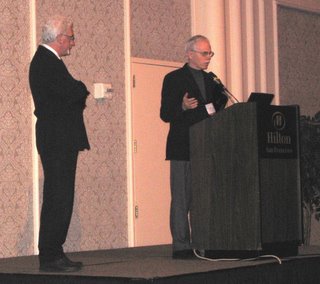OR in the media and Virginia Postrel
Partially it is the fault of much of the media, who are unwilling to assume a very high "lowest common denominator" in their readership. OR continues to be a weird black box, and our core values of analytical thinking, using data, and working with models are rarely portrayed.
One person who does get it is Virginia Postrel, who wrote a very fine article for the Boston Globe last year (and I don't say that just because I am quoted!). Here is what she had to say about publishing about operations research (in the context of the rise in productivity, which OR certainly contributes to):
In today's Boston Globe Ideas section, I look at one piece of that very big story [the rapid rise in productivity]: the spreading use of operations research techniques once confined to theory. (What's operations research? The story explains that too, or tries to without using any math, graphs, or jargon about optimizing subject to constraints or finding interior solutions. For more on the field, see the INFORMS site.)
Of course, very few general-interest publications would let a writer spend nearly 2,000 words writing about operations research--or, for that matter, rising productivity.
I stumbled across her website and blog, and she has a number of interesting posts on productivity (generally her 2004 posts, like the one I quoted that mentions her OR article). Her recent work is on glamor and aesethics, which doesn't appeal to me as much but might to others. Lots of interesting things to read throughout her website.


